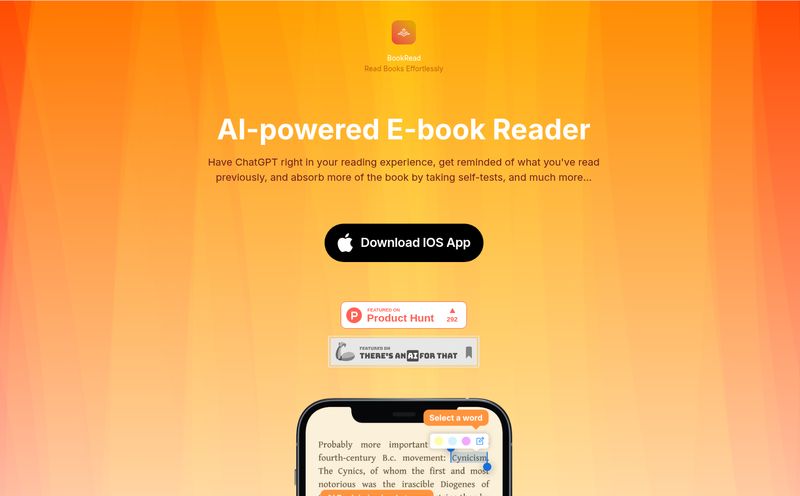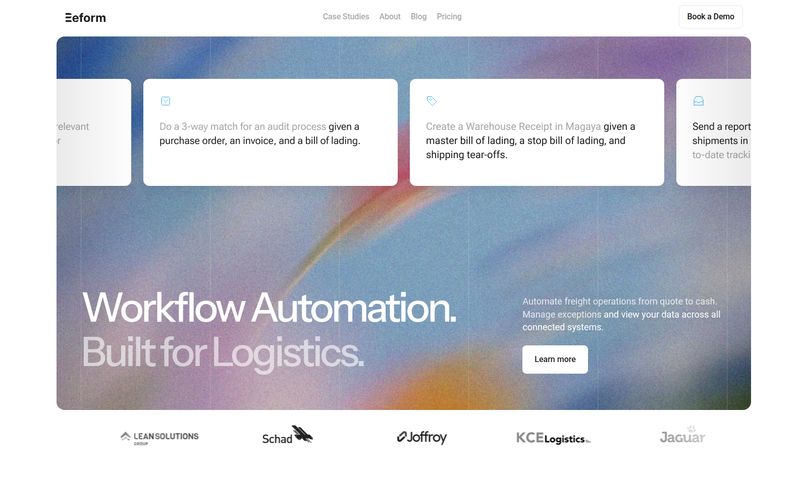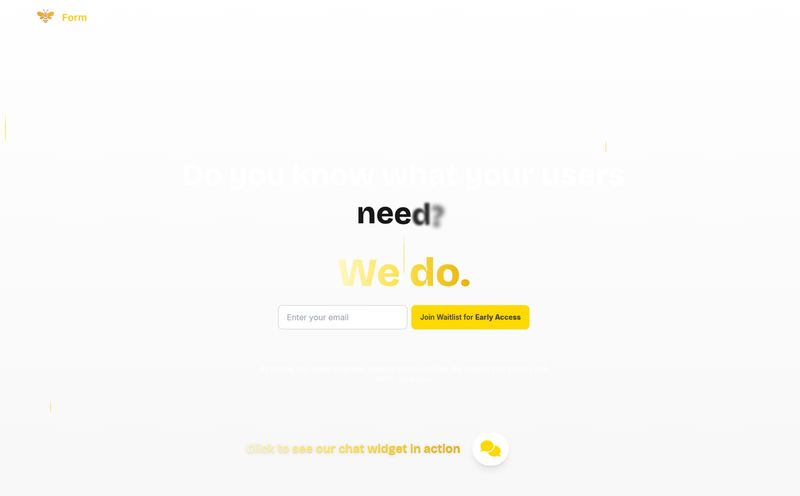For most of us in the marketing and business world, "data analytics" is a two-word horror story. It conjures images of incomprehensible spreadsheets, endless waits for the dev team to pull a report, and expensive software that promises the world but delivers a confusing mess of charts. We all know we should be data-driven. But the reality? It’s often a massive pain.
I've been in the SEO and traffic generation game for years, and I've seen tool after tool promise to be the silver bullet. So when I first heard about Zetta, an all-in-one data platform with a built-in AI analyst, my professional skepticism kicked in. Another one? But then I started digging, and my interest grew. They're making a bold claim: company-wide automated analytics in as little as a day. No data team required.
That’s a big promise. So I decided to do a deep-dive, cut through the marketing fluff, and give you my real, unfiltered take on whether Zetta is just another shiny object or if it's genuinely the tool we've been waiting for.
What Is Zetta, Really? (Beyond the Hype)
At its core, Zetta is a business intelligence (BI) platform. But calling it just a BI tool is like calling a smartphone just a phone. It misses the point. The traditional approach to BI involves a patchwork of solutions: a data warehouse like BigQuery or Snowflake, an ETL tool to move the data around, a visualization tool like Tableau, and most importantly, a team of expensive data analysts or engineers to make it all work.
Zetta's approach is to bundle all of that into a single, cohesive platform, and then layer a powerful AI on top of it. Think of it as a pre-built, super-smart data department in a box. It connects to your existing data sources, helps you define your Key Performance Indicators (KPIs), and then gets to work. Its goal is to make data accessible to everyone, not just the people who can write SQL in their sleep.
The Core Features That Actually Matter
A platform is only as good as its features. Zetta has a few that really stand out from the crowd, and they all work together to create a pretty compelling experience.
The AI Data Analyst: Your New Favorite Colleague?
This is the headline act. Instead of building a complex report to find a simple answer, you can just... ask. Zetta’s conversational AI lets you type questions in plain English. “What was our average customer lifetime value for users acquired in Q2?” or “Show me the top 5 traffic sources by conversion rate last month.”
This is a fundamental shift. It’s like having a junior analyst on call 24/7 who never gets tired and never makes you feel silly for asking a basic question. For marketing managers, founders, or anyone who isn't a data professional, this feature alone could be worth the price of admission. It lowers the barrier to entry for genuine curiosity.
Automated Insights: Cutting Through the Noise
Have you ever stared at a dashboard with 20 different charts and had no idea what you were supposed to be looking at? I have. More times than I care to admit. Zetta’s automated insights are designed to fix this. The system proactively analyzes your data and flags significant changes or trends. You might get a notification saying, “Your conversion rate from organic search increased by 15% this week, driven by traffic to blog post X.”
This is about moving from passive data visualization to active intelligence. It points you directly to the “so what?” which is where the real value is. It saves you the time and mental energy of hunting for the story within the data.
Dashboards and Data Warehouse: The Foundation
Of course, it still has the powerful dashboards you'd expect. The key difference is the promise of a “single source of truth.” By connecting directly to your data warehouses (like Snowflake, BigQuery, and Redshift on all plans) or even managing the warehouse for you (on the Enterprise plan), it aims to eliminate data inconsistencies. You know, the classic scenario where the marketing team's numbers don't match the sales team's numbers. It’s a nightmare.
Zetta pulls everything into one place, ensuring everyone is looking at the same information. You can use their prebuilt dashboards for things like ARR if you use Stripe, or build your own custom views. This is the bedrock of the whole system—clean, consistent data.

Visit Zetta
Let's Talk Money: Zetta Pricing Breakdown
Alright, the all-important question: what does it cost? Pricing can make or break a tool, and Zetta has a tiered structure that’s actually pretty logical. They offer both monthly and annual billing, with a discount for paying upfront for the year.
| Plan | Price (Annual Billing) | Best For |
|---|---|---|
| Starter | Free | Solo founders or small teams just starting to track KPIs. It’s limited to 1 user and 10 metrics, but it’s a great way to test the core platform. 1,000 AI questions/mo is generous. |
| Growth | $100/month + $3/user/month | Growing companies that need to give data access to the whole team. Unlimited users and metrics is the big jump here, plus 10,000 AI questions. This feels like the sweet spot for most SMBs and scale-ups. |
| Enterprise | Custom | Larger businesses that need a fully managed solution. They’ll handle everything, including connecting to over 350 sources (like Salesforce and HubSpot) and even managing the data warehouse for you. It's a white-glove service. |
My take? The free plan is genuinely useful, not just a crippled demo. The Growth plan’s pricing model is fair and scales predictably. The Custom plan is, well, custom. You’ll have to talk to sales, but it's positioned as a full-blown data-team-as-a-service.
The Good, The Bad, and The Data-Driven
No tool is perfect. Let’s get into the nitty-gritty of what I like and what gives me pause.
What I Genuinely Like About Zetta
First off, the speed is a huge selling point. The idea of going from zero to fully automated insights in a day or two is almost unheard of in the data world. This process usually takes months. The all-in-one nature is another massive win. Not having to stitch together three or four different tools saves time, money, and a lot of technical headaches. But for me, the most important benefit is how it democratizes data. It empowers team members who aren't data experts to find their own answers, which frees up your technical folks to work on more impactful projects. That's a cultural shift as much as a technical one.
Potential Hiccups to Consider
On the flip side, you are putting a lot of faith in Zetta's AI. If you have a team of seasoned data scientists who love getting their hands dirty and building complex custom models, they might feel a bit constrained. You’re trading some of that granular control for speed and simplicity. Also, particularly with the Enterprise plan where they can manage your data warehouse, you have to think about vendor lock-in. Migrating away from a deeply integrated data solution is never a fun project. It's a commitment, for sure.
So, Who Is Zetta Actually For?
After looking at everything, a clear picture emerges of the ideal Zetta customer.
This platform seems practically custom-built for:
- Early-stage and Series A/B startups who need sophisticated analytics but can't yet justify hiring a full data team of three to five people. Zetta gives them that capability for a fraction of the cost.
- Marketing and sales teams inside larger companies who are tired of being bottlenecked by IT and just want quick, reliable answers about campaign performance, lead attribution, and customer behavior.
- Founders and executives who need a clean, top-level dashboard of their most critical business KPIs without getting lost in the weeds.
Who might want to think twice? A massive corporation with a deeply entrenched, highly customized, ten-year-old data infrastructure might find a full migration challenging. Although, the Enterprise plan is designed to tackle just that, so it’s still worth a conversation with their team.
Frequently Asked Questions (The Stuff You're Probably Googling)
- What makes Zetta different from a tool like Tableau or Power BI?
- The biggest difference is the automation and the AI layer. Traditional BI tools are powerful but passive—they are blank canvases that require an expert to build something useful. Zetta is proactive. It automates dashboard creation and surfaces insights for you, and the AI analyst lets you query data with natural language.
- Do I need my own data warehouse to use Zetta?
- Not necessarily. For the Starter and Growth plans, you connect to your existing warehouse (like Snowflake, BigQuery). If you don't have one, the Enterprise plan offers a fully managed solution where Zetta provides and manages the data warehouse for you.
- Is it really possible to get set up in one day?
- From what I gather, yes, for simpler use cases. If you have a clean data source and know your key metrics, the connection and initial dashboard setup can be incredibly fast. More complex setups with messy data will obviously take longer.
- Can I export my data and reports?
- The FAQ on their site suggests you can. This is a critical feature to avoid feeling trapped, so it's good to see they allow you to get your data and metrics out of the platform.
- How hard is it for a non-technical person to use?
- This is who it’s built for. The conversational AI and automated insights are specifically designed so that someone in marketing, operations, or leadership can get value immediately without needing to learn a complex new piece of software.
My Final Verdict on Zetta
So, is Zetta the real deal? In my professional opinion, yes. For the right company, this tool is a massive step forward.
It's not just another dashboard builder. It's a thoughtful reimagining of how businesses should interact with their data. By focusing on automation, conversation, and speed, Zetta removes the biggest points of friction that keep most companies from being truly data-informed. It's one of the most exciting tools I've seen in the BI space in a long time.
If you've been struggling to make sense of your data, or if the cost and complexity of building a data stack has seemed out of reach, you should absolutly give Zetta a look. The free starter plan is a no-brainer way to see if it clicks for you. It might just be the data tool you've always wanted, but didn't know was possible.



